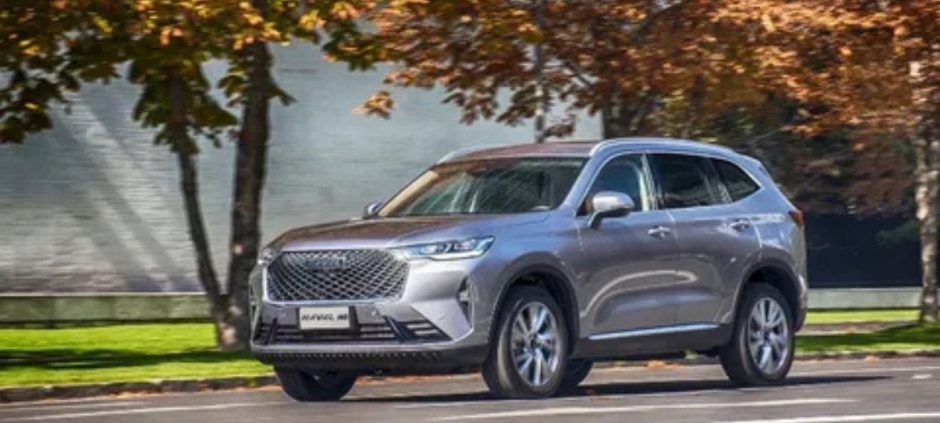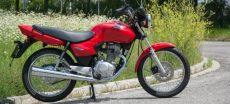Imagine driving an SUV that feels premium but doesn’t always come with the price tag of a European brand; that’s part of the appeal of a Haval car in Pakistan. But how well do these Chinese SUVs hold up on our local roads and in our repair shops? Let’s explore.
Why People Like Haval Cars in Pakistan
Pakistani buyers are curious about SUVs that look premium without burning a hole in the pocket. Many want modern tech, comfort, and a car that fits local roads, and Haval promises exactly that.
1. Good Value for Premium Features
Haval, a brand under Great Wall Motors (GWM), offers SUVs with many modern features, such as big infotainment screens, good safety tech, and turbo engines, at a price that’s often more affordable than comparable foreign SUVs. With the launch of the Haval H6 PHEV in Pakistan, Sazgar has made a strong case for premium hybrid SUVs in a local context.
2. Locally Assembled Hybrid Option
One of the biggest pluses is that Sazgar is assembling the H6 Plug-in Hybrid Electric Vehicle (PHEV) in Pakistan. This means parts of the hybrid model could be more accessible, and it could be slightly cheaper than fully imported versions. Also, the PHEV makes 360 HP and can run around 90 km on electric alone.
3. Growing Local Production
The Haval H6 HEV was the 10,000th car produced locally by GWM-Sazgar in Lahore, showing a commitment to local manufacturing. This could mean better parts supply in the future and more trust in the brand.
4. Wide Network of Models
In Pakistan, you can find different Haval variants, like the compact Jolion, larger H6, and even the rugged Tank 500 SUV. This variety means there’s something for different kinds of drivers, city folks, family SUV lovers, or off-roaders.
What Could Go Wrong
No car is perfect, and Haval is no exception. While it has many advantages, some practical challenges could make life tricky for certain Pakistani owners.
1. High Price for Hybrids
Yes, the PHEV is exciting, but the price is steep. The H6 PHEV is set at Rs. 12,895,000 for the ex-factory model. For many, this pushes it into a premium-buyer bracket where alternatives may make more sense.
2. Parts & Service Concerns
While local production is growing, many Haval parts still come from China or regional hubs. Some owners (especially abroad) mention long waiting times or higher service costs. According to one, “All is great … No parts were required, so can’t comment on its availability.” Others worry about electronics or software issues, things that may need specialized tech to fix.
3. Questionable Paint Quality
Some Haval owners have reported paint chips or quality issues. For a local road full of small stones and gravel, this could be more than just cosmetic; long-term durability may be a concern.
4. Resale Value Risk
Newer Chinese brands (even well-known ones) still face questions about long-term resale value. If you plan to sell after a few years, you might not get as much as you would from more established global brands.
5. Fuel Economy Anxiety
While hybrids ease this worry, non-hybrid models might not be as fuel-efficient in real-world Pakistani driving conditions. Some users say performance is good, but consumption doesn’t always match expectations.
Maintenance Tips & Spare Parts Reality
Owning a Haval is exciting, but smart maintenance is key to avoiding headaches. Understanding spare parts availability and care routines can save you time, money, and frustration.
- Use Official Dealers: Stick to authorized Haval dealerships in Pakistan for regular servicing. That way, you’re more likely to get genuine parts.
- Order Critical Parts Early: For parts that take longer (think electronics or turbo components), try to pre-order or at least check lead times.
- Stay Updated on Hybrid Care: If you have the PHEV or HEV model, understand hybrid battery service and maintenance to avoid surprises.
- Maintain Smartly: Regular check-ups, tire rotation, and battery health checks can help extend the life of your Haval, just like any modern SUV.
Common Issues Reported by Pakistani & Overseas Haval Owners
Many Haval owners have shared their experiences online, giving a realistic picture of potential issues. One common complaint is software glitches or infotainment bugs. The touchscreen or connectivity features can sometimes act up, which might require a dealer visit to fix.
Paint wear is another recurring concern. Some owners report minor chips and scratches appearing earlier than expected, especially on roads with gravel and potholes.
Spare parts delivery can also be slow. Depending on the model and the part needed, some users have faced long waiting times. This is more common for specialized electronic or hybrid components.
Finally, after-sales service seems to vary. While some dealerships provide excellent support, others may be less responsive, making it important to choose your service center carefully.
A Quick Reality Check
So, is a Haval car truly suited for Pakistani roads? It depends on your priorities.
If you’re after a feature-packed SUV with modern technology and don’t mind paying a premium, Haval makes a strong case. Especially the hybrid H6 PHEV, which offers a mix of electric and petrol power along with local assembly advantages.
However, if you’re concerned about resale value, spare parts access, or long-term maintenance, you may need to weigh your decision carefully. Non-hybrid models can also be less fuel-efficient in stop-and-go city traffic.
For environmentally conscious buyers, the H6 PHEV is a rare option combining performance with hybrid efficiency. It may not be perfect, but for many, the advantages outweigh the potential drawbacks.
Final Thoughts on Haval Ownership in Pakistan
At the end of the day, Haval cars bring something fresh to Pakistan’s automotive market: modern design, hybrid ambition, and real competition. They’re not flawless, but for many drivers, the benefits outweigh the risks.
If you’re looking to buy one, do your homework: visit a dealership, ask about part lead times, and maybe go for a test drive of both the hybrid and petrol versions.











